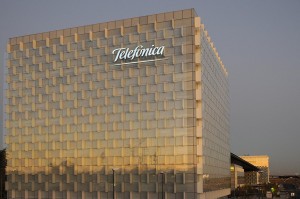Brazilian regulator could complicate Telefónica-Vivendi deal
 The acquisition of Vivendi’s Brazilian subsidiary GVT by Telefónica could be complicated by a demand by the Brazilian regulator that the Spanish telecom exit Telecom Italia sooner than planned, according to Italian press reports.
The acquisition of Vivendi’s Brazilian subsidiary GVT by Telefónica could be complicated by a demand by the Brazilian regulator that the Spanish telecom exit Telecom Italia sooner than planned, according to Italian press reports.
Telefónica president Cesar Alierta has signaled his intention to sell the company’s indirect stake in Telecom Italia, and Telefónica’s deal with Vivendi gives the latter the option to acquire an 8.3% stake in the Italian operator from the Spanish telco’s 14.7% stake post Telefónica’s acquisition of GVT.
However, Brazilian competition regulator Cade last year ruled that Telefónica should either exit Telecom Italia, which owns a majority stake in Brazilian operator TIM Brasil, or sell 50% of its own Brazilian subsidiary Vivo to a third-party operator.
According to Italy’s Il Sole 24 Ore, the Cade will not review Telefónica’s GVT acquisition until the issue of its stake in Telecom Italia is resolved. This is the reverse of the process envisaged by Alierta, which foresaw a sale of its stake in Telecom Italia to Vivendi after the GVT deal has gone through.
Telefónica’s plans in Brazil could also be complicated by restrictions that the regulator may place on it enforcing the separation of GVT from Vivo’s activities if the GVT acquisition does go ahead, according to Il Sole 24 Ore.
Telecom Italia’s second largest shareholder, Marco Fossati, has meanwhile said any offer for TIM Brasil would have to be worth at least 11 times EBITDA, following expressions of interest from Portugal Telecom-affiliated fourth-placed Brazilian operator Oi. Oi is reportedly considering a partnership with Mexico’s America Movil and Telefónica that could see TIM Brasil split between the three.
Telecom Italia had earlier offered €7 billion for GVT, including a 16% stake in Telecom Italia and a 15% stake in TIM Brasil to Vivendi ahead of the latter’s decision to open exclusive negotiations with Telefónica, following the Spanish telco’s decision to up its earlier €6.7 billion bid to €7.45 billion.



